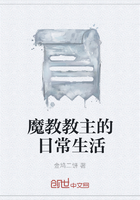In the first place the weapons used have reached such a stage of perfection that further progress which would have any revolutionising influence is no longer possible. Once armies have guns which can hit a battalion at any range at which it can be distinguished, and rifles which are equally effective for hitting individual men, while loading them takes less time than aiming, then all further improvements are of minor importance for field warfare. The era of evolution is therefore, in essentials, closed in this direction. And secondly, this war has compelled all continental powers to introduce in a stricter form the Prussian Landwehr system, and with it a military burden which must bring them to ruin within a few years. The army has become the main purpose of the state, and an end in itself; the peoples are there only to provide soldiers and feed them. Militari** dominates and is swallowing Europe. But this militari** also bears within itself the seed of its own destruction. Competition among the individual states forces them, on the one hand, to spend more money each year on the army and navy, artillery, etc., thus more and more hastening their financial collapse; and, on the other hand, to resort to universal compulsory military service more and more extensively, thus in the long run ****** the whole people familiar with the use of arms, and therefore enabling them at a given moment to make their will prevail against the warlords in command.
And this moment will arrive as soon as the mass of the people -- town and country workers and peasants -- will have a will. At this point the armies of the princes become transformed into armies of the people;the machine refuses to work and militari** collapses by the dialectics of its own evolution. What the bourgeois democracy of 1848 could not accomplish, just because it was bourgeois and not proletarian, namely, to give the labouring masses a will whose content would be in accord with their class position -- socialism will infallibly secure. And this will mean the bursting asunder from within of militari** and with it of all standing armies.
That is the first moral of our history of modern infantry. The second moral, which brings us back again to Herr Dühring, is that the whole organisation and method of warfare of the armies, and along with these victory or defeat, prove to be dependent on material, that is, economic conditions: on the human material and the armaments, and therefore on the quality and quantity of the population and on technical development. Only a hunting people like the Americans could rediscover skirmishing tactics -- and they were hunters as a result of purely economic causes, just as now, as a result of purely economic causes, these same Yankees of the old States have transformed themselves into farmers, industrialists, seamen and merchants who no longer skirmish in the primeval forests, but instead all the more effectively in the field of speculation, where they have likewise made much progress in ****** use of large masses. -- Only a revolution such as the French, which brought about the economic emancipation of the bourgeois and, especially, of the peasant, could find the mass armies and at the same time the free forms of movement which shattered the old rigid lines -- the military counterparts of the absolutism which they were defending.
And we have seen in case after case how advances in technique, as soon as they became applicable militarily and in fact were so applied, immediately and almost forcibly produced changes and even revolutions in the methods of warfare, often indeed against the will of the army command. And nowadays any zealous N.C.O. could explain to Herr Dühring how greatly, besides, the conduct of a war depends on the productivity and means of communication of the army's own hinterland as well as of the theatre of war. In short, always and everywhere it is the economic conditions and the instruments of economic power which help "force" to victory, without which force ceases to be force. And anyone who tried to reform methods of warfare from the opposite standpoint, on the basis of Dühringian principles, would certainly earn nothing but a beating. *4If we pass now from land to sea, we find that in the last twenty years alone an even more complete revolution has taken place there. The warship of the Crimean War [79] was the wooden two- and three-decker of 60 to 100 guns; this was still mainly propelled by sail, with only a low-powered auxiliary steam-engine. The guns on these warships were for the most part 32-pounders, weighing approximately 50centners, with only a few 68-pounders weighing 95 centners. Towards the end of the war, iron-clad floating batteries made their appearance; they were clumsy and almost immobile monsters, but to the guns of that period they were invulnerable. Soon warships, too, were swathed in iron armourplating;at first the plates were still thin, a thickness of four inches being regarded as extremely heavy armour. But soon the progress made with artillery outstripped the armour-plating; each successive increase in the strength of the armour used was countered by a new and heavier gun which easily pierced the plates.















